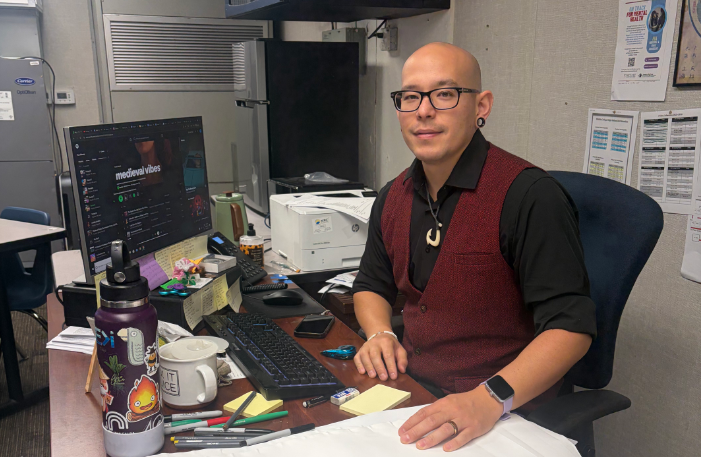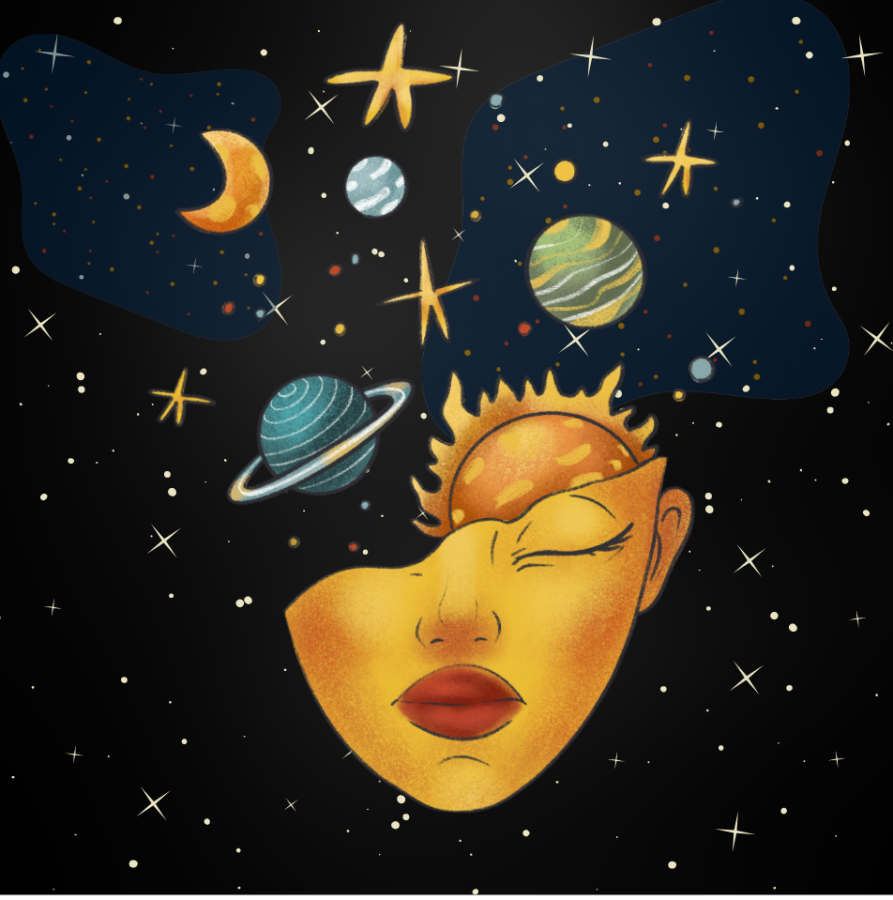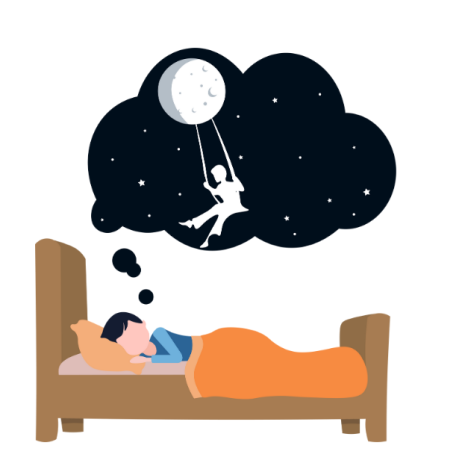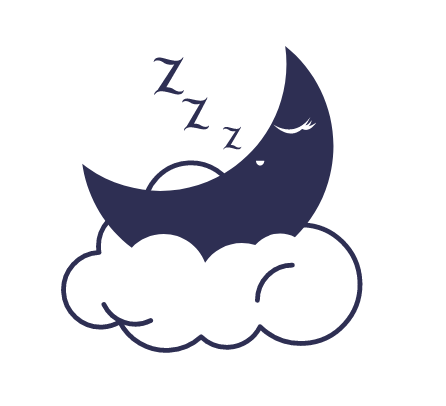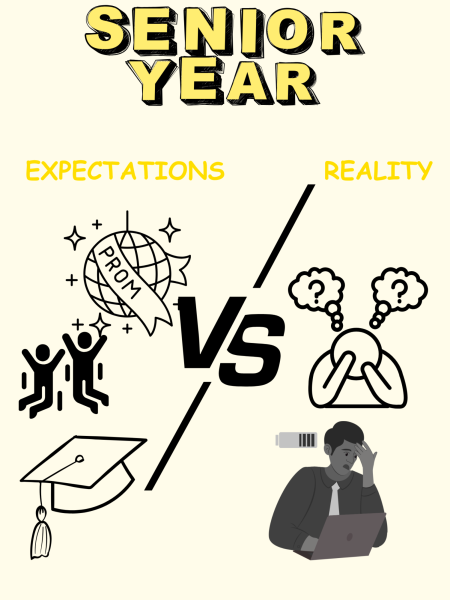Looking into the window of your subconscious mind
Interpreting dreams unlocks the universe that lives inside your mind.
It’s dark. Suddenly you are running through the woods. You get the feeling that you’re being chased so you turn and look. It’s a monster, but you see your mom chasing you. While running through the woods, you see some people you know. Your best friend is flirting with your celebrity crush, but you don’t have time to stop because the monster is still chasing you. Eventually you lose the monster, but you see other strange things on your way to school but you end up in a pool.
Then you wake up.
Growing up I had vivid dreams that were always much weirder than the one described. I never really knew what they meant until I decided to get a book about symbolism in dreams. I learned that they have important messages. Since then, I have been analyzing every dream I have.
Analyzing my dreams has helped me get to the root of my issues and work through them. They are a way to look into yourself on a deeper level.
Dreams serve as a window into the subconscious mind which is the part of us that interprets the world without us being aware. The subconscious mind remembers everything you have felt and experienced.
Psychologist Valerie Foster-Young thinks that dreaming helps our subconscious and conscious mind communicate with each other.
She said, “I think they are very valuable. It tells you a lot about your subconscious and unconscious mind.”
Everyone dreams for an average of two hours per night.
Not everyone can remember every dream they have. However, if you can’t remember any dreams within the last few months, your sleep patterns may be interrupted or your dream recall is not strong enough.
Building your dream recall is the first step to analyzing them. If you form a habit of writing down what you remember every morning, you will be able to recall more of your dreams with time. Even if you don’t remember everything, it’s important to write down what you can.
Taking your dreams seriously can be difficult at first because of the surrealism aspect. When you are asleep, your creative mind is more powerful which explains why some dreams can be so strange.
Foster-Young said, “Dream language doesn’t have a language; it only uses symbols.”
Understanding dream symbols is the next step to understanding yourself better. There are many books and articles that can teach you about symbolism in dreams.
Foster-Young recommends dream guides because they are consistent in their explanations. After you analyze the symbols, you need to see how they apply to your own life.
Foster-Young discussed the symbolism of water in dreams. She said where you are in relation to the water matters. If you are above it, you are on top of your emotions and have everything together while if you are in it, you are not in control of them.
In America, the most common dream symbol is falling which represents a lack of control in a specific situation.
Though symbolism in dreams bonds us, everyone has different experiences.
MCHS alumnus Roselinh Crowe, gets around ten hours of sleep per night and dreams about once a week.
Crowe said, “I believe I dream more often, but I have a bad memory– sometimes I can’t remember a dream at all.”
Crowe’s dreams are typically the same. Even with similar dreams there can be a wide range of symbolism to analyze.
She said, “I mostly see things from the physical world in my dreams. Nothing crazy like goblins or fairies, just familiar environments and people I have seen before.”
Crowe keeps track of the dreams she wants to remember. She likes to write about dreams that have strange themes and vivid emotions.
Senior Samantha Esparza has great dream recall but does not write them down.
Esparza isn’t interested in analyzing all of her dreams because she believes they don’t mean much. In some cases if the dream stands out, she will analyze it to figure out what she is feeling.
Esparza said, “I’ve had confusing dreams. I sometimes dream of people that I haven’t seen in a while or even strangers.”
Esparza’s dreams relate to how her days went. If she had a bad day, her dream will be negative and vice versa. When Esparza looks into their meanings, her dreams help her work through challenges and bad days.
Esparza looks forward to dreaming because they will sometimes provide her hope for the future and strength for her everyday life.
She said, “I think dreams portray new beginnings and a distraction from everyday activities. You can go to bed and dream during the night and wake up feeling fresh to start the next day.”
Senior Alexxander Gutierrez dreams about once a week and occasionally remembers his dreams. Most of them involve his friends or family.
He said, “I usually lose the people around me by walking away or them dying.”
Gutierrez believes his dreams have to do with his mental state. Unresolved fears and feelings will continue to appear in dreams until they have been worked through. In this case, Gutierrez has unresolved abandonment issues.
He said, “The ones that deal with my loneliness are probably connected to it [anxiety or depression] or the ones that make me feel overwhelmed.”
Along with themes of abandonment, Gutierrez tends to have dreams where he has done something wrong. When he has these types of dreams, he feels uncomfortable at first but uses them to learn about his insecurities.
Gutierrez said, “Sometimes I can find solutions to my problems in dreams and maybe even think of an idea from them.”
Experts think dreams help us prepare for challenges we might face during the day along with aiding memory retention.
Foster-Young said, “They [experts] don’t really know, but if you study before going to sleep your brain will integrate your knowledge. It helps processing but scientists are still figuring out its purpose.”
Regardless of why we dream, we can use them to our advantage. Writing them down, learning about symbolism, and applying the symbols to our own experiences and emotions can help you have a better understanding of yourself.
Crowe said, “I think the mind is very powerful and dreams can be the subconscious communicating with the conscious mind.”

I have 4 cats, I’ve met Kill Bill:The Rapper, and I’ve seen Billy Joel in Vegas

